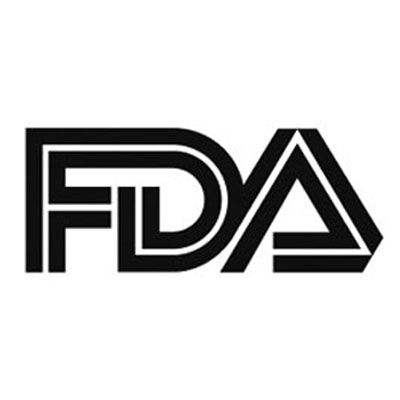FDA Grants Breakthrough Designation to Mobocertinib for EGFR Exon 20+ NSCLC
Mobocertinib was granted a Breakthrough Therapy designation by the FDA for the treatment of patients with metastatic non–small cell lung cancer harboring EGFR exon 20 insertion mutations whose disease has progressed on or after platinum-based chemotherapy.

The FDA has granted a Breakthrough Therapy designation to mobocertinib (TAK-788) for the treatment of patients with metastatic non–small cell lung cancer (NSCLC) harboring EGFR exon 20 insertion mutations whose disease has progressed on or after platinum-based chemotherapy.1
“We are pleased that the FDA has recognized the therapeutic potential mobocertinib offers for patients with EGFR exon 20 insertion–mutant NSCLC who are desperately in need of effective treatment options,” said Christopher Arendt, head, Oncology Therapeutic Area Unit, Takeda, in a statement. “Establishing Breakthrough Therapy Designation for mobocertinib is one step forward in our efforts to help change the current standard of care for this underserved population.”
Mobocertinib is a small molecule tyrosine kinase inhibitor that selectively targets both EGFR and HER2 exon 20 insertion mutations. Exon 20 is the third most common alteration in EGFR, but no agents are currently approved to target exon 20 mutations.
Positive findings from a phase I/II trial of the agent, in which mobocertinib induced an objective response rate (ORR) of 43%, supported the breakthrough designation.
The phase I/II trial was a multicohort study of patients with advanced NSCLC and various disease characteristics. Results from a group of patients in the study that were treated at the recommended phase II dose of 160 mg once daily (n = 28) were presented at the 2019 American Society of Clinical Oncology Annual Meeting.2
All of the patients in the group had locally advanced or metastatic disease and were previously treated. The median age was 62 years, and the median number of prior treatments was 3. Many of the patients (43%) also had brain metastases at baseline.
Confirmed responses were observed in 12 patients for an ORR of 43% (95% CI, 24%-63%), and the disease control rate (DCR) was 86% (95% CI, 67%-96%).
Among patients with baseline brain metastases, the ORR was 25%, and the DCR was 67%, whereas the ORR and DCR were 56% and 100%, respectively, among patients without brain metastases.
The overall median progression-free survival (PFS) was 7.3 months. For patients with and without brain metastases, the median PFS was 3.7 and 8.1 months, respectively.
The safety analysis included 72 patients treated with the 160-mg dose across all cohorts of the trial. Grade ≥3 treatment-emergent adverse events (AEs) were reported in 63% of patients and treatment-related AEs were seen in 40%. The most common treatment-related AEs were diarrhea (85%), nausea (43%), rash (36%), vomiting (29%) and decreased appetite (25%).
Following the positive findings seen in the cohort of patients with EGFR exon 20 insertion mutations from the phase I/II trial, the phase II EXCLAIM trial was opened as an extension to further the analysis of mobocertinib in this patient population. Enrollment has since completed.
The agent is also being investigated in the ongoing global, randomized phase III EXCLAIM-2 trial (NCT04129502) in patients with treatment-naïve NSCLC harboring EGFR exon 20 insertion mutations.
Last year, the FDA also granted mobocertinib an orphan drug designation for the treatment of patients with NSCLC harboring HER2 mutations or EGFR mutations, including exon 20 insertion mutations.
References
- Takeda Announces U.S. FDA Breakthrough Therapy Designation for Mobocertinib (TAK-788) for the Treatment of NSCLC Patients with EGFR Exon 20 Insertion Mutations [news release]. Cambridge, MA & Osaka, Japan: Takeda Pharmaceutical Company Limited; April 27, 2020. https://bwnews.pr/2KFC7vj. Accessed April 27, 2020.
- Janne PA, Neal JW, Camidge DR, et al. Antitumor activity of TAK-788 in NSCLC with EGFR exon 20 insertions. J Clin Oncol. 2019;37(suppl 15; abstr 9007). doi: 10.1200/JCO.2019.37.15_suppl.9007.